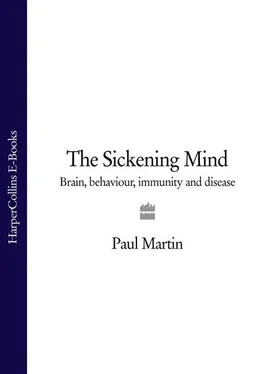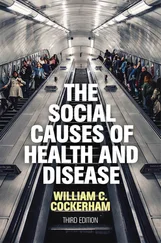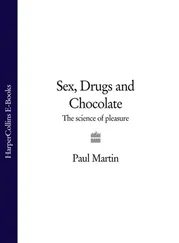A clear demonstration of this phenomenon came from some scrupulously designed research conducted by David Phillips and Daniel Smith of the University of California at San Diego. They analysed the mortality statistics for Chinese people living in California to see whether there were any fluctuations in the risk of dying at around the time of the Harvest Moon Festival – an occasion which is of symbolic importance to Chinese people but not others.
Phillips and Smith found a large and statistically significant dip in the number of Chinese dying from natural causes just before the Harvest Moon Festival. This was followed by a corresponding and compensatory rise in mortality just after the festival was over. In the week preceding the festival the death rate among Chinese Californians was 35 per cent below the expected level, while in the week after the festival it was 35 per cent higher than expected. There was no overall change in the number of people dying, but some deaths that would otherwise have occurred just before the festival were somehow postponed until after it was over.
There is little doubt that this strange phenomenon of delayed death was specifically linked to the symbolic occasion of the Harvest Moon Festival. The dip and rise in the risk of dying was most evident among elderly Chinese women, who play a central role in the ceremonies. The Harvest Moon Festival is a movable feast – the date varies somewhat from year to year – so the fluctuation in mortality rate was definitely linked to the occasion itself, rather than to any specific calendar date. Furthermore, there were no comparable fluctuations in mortality among Jews and other non-Chinese Californians for whom the Harvest Moon Festival has no symbolic importance.
The analysis only looked at deaths from natural causes, so the phenomenon could not be explained by changes in people’s propensity to commit suicide. Conceivably, some deaths might have been delayed because sick individuals took better care of themselves in the run-up to the festival, or because they received extra attention from their family and doctor. But the sheer scale of the phenomenon implied that something more profound was going on as well. In fact, the biggest fluctuations were in deaths caused by disorders of the heart and circulatory system, especially strokes and heart attacks. These are notoriously susceptible to psychological and emotional influences.
An almost identical dip and rise in mortality rate occurs among Jewish people around the festival of Passover. Like the Harvest Moon Festival, Passover is of cultural significance for one section of the community only and its dates vary from year to year.
The statistics reveal that the number of Jewish people dying from natural causes dips sharply just before Passover and bounces back with a compensatory increase immediately afterwards. Again, the fluctuation relates primarily to strokes and heart attacks and no such variation in mortality occurs among non-Jews for whom Passover has no personal significance.
Evidence like this strongly implies the existence of links between our mental or emotional state and our physical health. It is the scientific nature of these mind – body links, and their many ramifications, that we shall be exploring in this book.
All scientists know of colleagues whose minds are so well equipped with the means of refutation that no new idea has the temerity to seek admittance. Their contribution to science is accordingly very small.
Peter Medawar, A Note on ‘The Scientific Method ’ (1949)
I am too much of a sceptic to deny the possibility of anything.
T. H. Huxley, letter to Herbert Spencer (1886)
Contemporary attitudes towards the relationships between mind, body and disease are strangely confused. On the one hand we have the uncritical acceptance by the public, popular media and gurus of New Age medicine that the mind is both the source and the remedy for the majority of bodily ills. Set against these Cavaliers of mind – body interactions we have the Roundhead sceptics, who either dismiss the connections between psychological factors and physical disease as pseudo-scientific wishful thinking, or else simply ignore them altogether.
The tenet that psychological factors play a role in causing or curing bodily diseases is, of course, an ancient one – far older than modern medicine. Throughout history people have held deep-seated beliefs in the power of the mind to influence physical health, and down the centuries (until the twentieth century, anyway) physicians have explicitly linked physical wellbeing with mental wellbeing. It therefore comes as no great surprise to us if a major emotional upset such as bereavement, depression, divorce or redundancy later manifests itself in physical form. Our everyday experience, let alone statistical data from the Gulf War, seems to support this view.
But is this age-old notion of the mind affecting physical health a self-evident truth or merely unsubstantiated pseudo-science? Is it true that we are more likely to fall ill when we are stressed, anxious or depressed? Are individuals with certain personality types more susceptible to colds, allergies, heart disease or cancer? These are questions of profound medical significance. They are also fascinating scientific puzzles.
In ancient times healers worked on the pragmatic basis that the mind and the body are intertwined. Physical disorders could stem from problems in the mind and mental disorders could be reflections of bodily disease. Accordingly, physicians were encouraged to treat the soul and not just the body, using soothing words to comfort the patient’s mind.
Ancient Greek medicine placed great emphasis on the curative power of katharsis – the purging and purification of the patient’s soul. Plato and other great thinkers recognized that these psychological charms were remarkably effective in relieving physical ailments. They also recognized that these charms would not work properly unless both the patient and the physician believed in their curative powers.
Nowadays the supposedly damaging effects on health of anxiety, over-work, job insecurity and loneliness form a recurrent theme in the media, which preaches the message that stress makes us ill. The implicit connection between mental state and physical health seems to be uncritically accepted by an increasingly health-conscious public.
There has been an explosive growth in alternative and complementary forms of medicine, which tend to emphasize the underlying unity of mind and body. Around one third of the adult population has consulted a practitioner of the alternative medical arts at some time. Bookshop shelves groan under the weight of publications proclaiming the self-help gospel that health is all a matter of thinking the right thoughts and banishing negative emotions.
The self-help industry and New Age gurus offer us such tantalizing prospects as self-healing through love, thinking ourselves better from cancer, using the mind to heal all manner of dread diseases and, ultimately, reaching that holistic nirvana of health, happiness and self-fulfilment through the power of pure thought. It is easy to see why the sceptical Roundheads can be so dismissive of the mind – body Cavaliers.
A profound change in the pattern of diseases during the twentieth century may also have contributed to this trend. The infectious diseases that killed vast numbers until fifty years ago have almost disappeared from the wealthy industrialized nations – though not from poorer parts of the world. Their place in the league table has been taken by chronic degenerative disorders such as coronary heart disease and cancer. Diseases of the heart and circulatory system, cancer and accidental injuries now account for more than three-quarters of all deaths. In contrast, infectious and parasitic diseases account for less than 0.5 per cent of all deaths. 2
Читать дальше












